Many athletes have started using compression socks, sleeves and tights (and not just in running). These socks were usually only really used by patients with sore lower legs, or pilots on long haul flights.
Nurses who are on their feet all day have also sworn by these types of socks. But as a runner you have strong healthy legs, so what are the benefits of compression socks for running?
Should you invest in some before your next run? Will it be worth it to spend your hard earned cash on a pair of socks when there are so many other things you can buy to help with your running?
The research
First, let’s start with the facts. There is a lot of research that is being done on muscles and how they perform, but there seems to be some mixed results on how effective compression socks are during the activity, but it does have a real provable benefit after a run.
There have been quite a few smart people looking at what the effects are for athletes who use these socks. It has been proven to alleviate pain or soreness after a long run and it helps with recovery.
It is more difficult to be sure how effective these are during a run, because the way we feel about these socks.
If you think these socks will help you during a run, they will. If you don’t think much of it they don’t seem to make much of a difference. But no matter what you think, they do really work after the run. But let’s take a look at some of the benefits in more detail.
During the run
There are a few benefits of wearing compression socks while you are out on a run that don’t necessarily have a connection to your muscles and a large scientific study, but it can help you to decide if these added benefits are also something to add to your pro or con list.
Protection is one basic benefit of wearing compression socks. It won’t protect you against a sudden bear attack or zombie apocalypse, but they will keep your skin happy especially if you do trail running. It will tackle scratches, nicks and stones so your skin won’t have to. On the road they can offer a little extra sun protection.
Another basic benefit is to help keep your legs clean (if it is an issue for you). So mud and dust will leave the socks dirty and not your legs.
When you run in colder weather a little extra warmth can make a big difference in how comfortable you feel while running. These socks can also be used with your running tights or sweatpants for a little extra warmth.
>
After the run
The real scientifically proven benefit of compression socks is after your run. If you have completed a marathon (or any other distance race) you will know that the real soreness sets in after the race. The use of compression socks help to keep the buildup of lactic acid in check and prevent stiffness.
They help to increase circulation in your leg muscles and increase your recovery time. These socks will really work well for those of you who run marathons or ultras, but can also be useful on shorter distances like 10ks or half marathons.
If recovery is very important in your training you can really invest in these. They can also be used in other forms of training. Iron man, triathlon, biathlon and other multisport athletes really need to have effective recovery as well. So, if you do multisport they can help to keep the pain to a minimum and your recovery fast.
In the mind
The benefits of compression socks are real and definitely not only in the mind of those who love them, but there seems to be a Psychological benefit to wearing them as well. If you think these socks will help your time during a run, they seem to really help. They just feel like they are supporting you and that can already make a difference.
There is also the aspect of looking cool. Quite a few professional ultra-running teams have started to wear branded compression socks and they look great. If you want to just look awesome while you run (or be more visible) these socks add a little extra style.
Some tips
If you have read enough about the benefits of compression socks and want to invest in your first pair we also have a few tips to help you buy the best ones. Firstly, (and this may seem obvious) don’t buy ones in white.
If you see them in the shop they look great and clean, but they will not keep up their appearances (unless you want to test washing powder after every run). Especially if you do trail running they will quickly turn a completely different color.
Next you need to be sure of the size. Compression socks can be a little difficult to fit. They need to be tight and snug to provide the compression they are designed to, but they should not be too tight. If they don’t fit well they can cause circulation issues. So it will be good to also measure your calves and check carefully with the manufacturer what size they recommend.
If you are going to wear them in cold weather with running pants, remember that the pants or tights should not be too tight because you will get the compression from the socks already.
Across the finish line
Hopefully we have clarified the benefits of compression socks for running for you. If you decide to invest in a pair (or two) of these we hope you see an improvement in your recovery and in the time of your next race. Maybe you will just enjoy your finish line photo with a pair cool looking socks on your legs. Either way we hope you enjoy your next run!

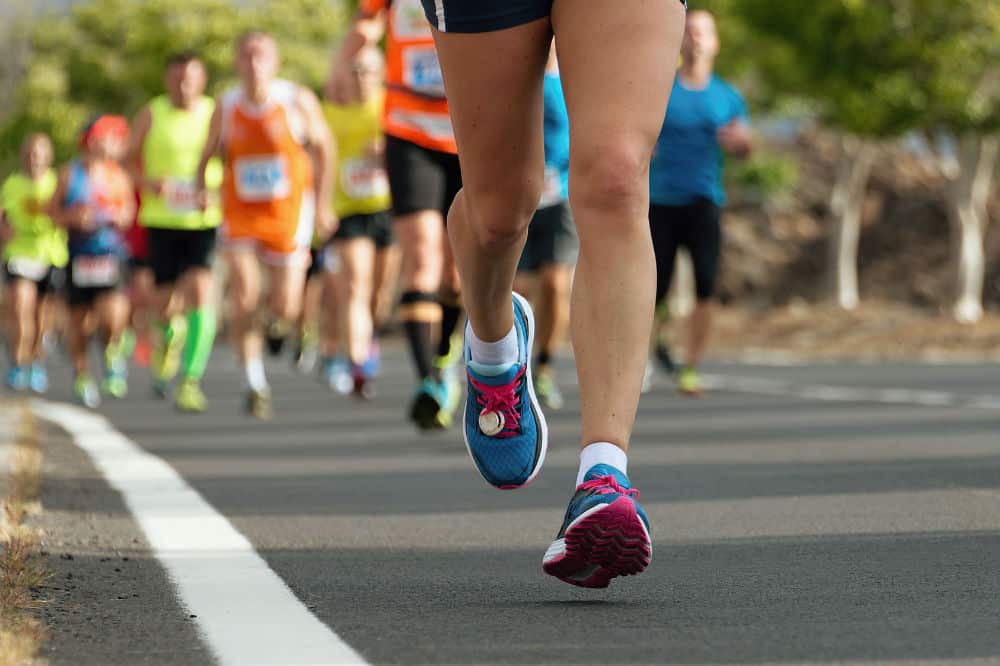


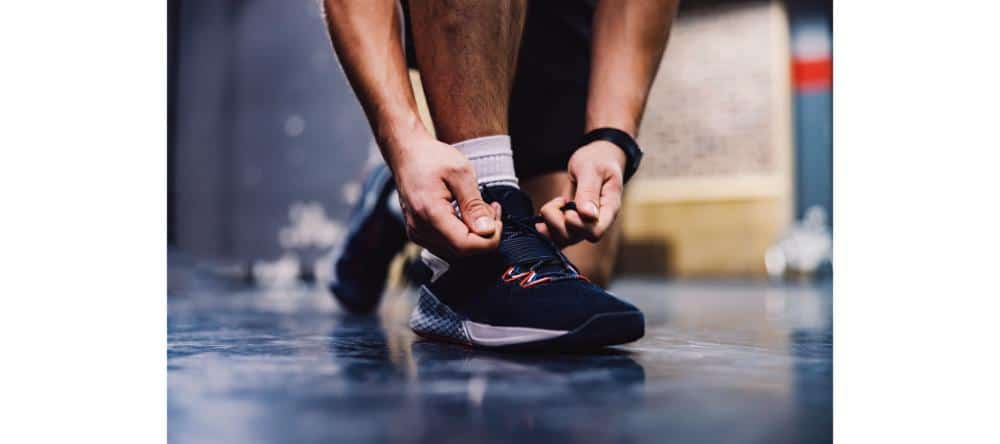


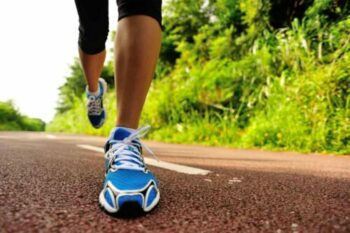

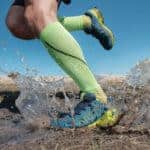


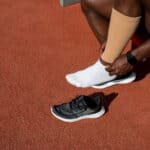

I have never thought of using compression socks as added gear for running! But, it makes good sense that they would not only help support my calf muscles but, they would also protect against dirt and injury!
I must admit that even after a short 5K run, my calves get a little sore and it takes a few days to recuperate. Do you think the compression socks will shorten the recuperation time?
Also, what compression do you think is best for runners? Is light compression, such as 8-15mmHg enough? Or, should I opt for a higher compression level? I notice that there is a wide variety of compression levels available…as high as 40-50mmHg!
Jim
Thank you, Jim.
Yes, the compression socks will shorten the recuperation time. Like you said, the calves get a little sore and it´s quite normal. But the use of compression socks helps to keep the buildup of lactic acid in check and prevent stiffness.
About the tightness. It needs to be tight but at the same time, it´s very important to not have it to tight, because of the circulation system. I would start with 10-15mmHg. and see how it fit for you. But I am sure you will get a lot of different opinions on this question
Hi! I actually have ran marathons a lot of times and have been a huge fan of running for a long time already. Recently, my friends started talking about compression socks and I have no clue about it. That’s why I decided to do a reseatch and landed on your site!
I got a question though. How tight is it considered to be tight for compression socks or compression wear in general as I am new to the idea of compression wear?Thank you!
Thank you, Fernglow.
About the tightness. It needs to be tight but at the same time, it´s very important to not have it to tight, because of the circulation system. I would start with 10-15mmHg. and see how it fit for you. But I am sure you will get a lot of different opinions on this question
Hi there.
I’m not a runnner, I just never enjoyed it that much. However I am a keen cyclist. Would these help incycling? As I know cyclists also suffer from latic acid build up. I would hope compression socks do. They would also help with visibility on the road if your out on a early morning training session, if you have a bright pair. Thanks for the great article
Trev
Thank you, Trevor.
Yes, it´s no doubt that it would help you as a cyclist. As you said, it´s an enormous pressure on the calves and legs which can make a bad lactic acid build up.
And the extra bonus that the drivers can see you too better.